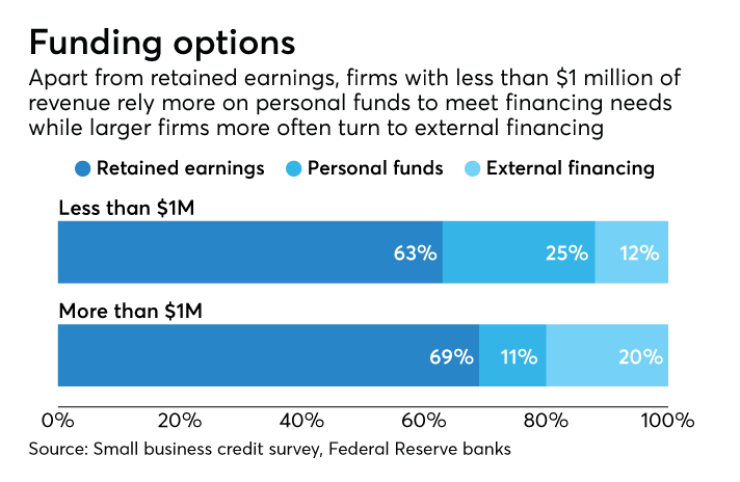Initially, many online small-business lenders tried to beat the banks. Then, as they wrestled with the need to become profitable, they sought to team up with the same banks they had set out to disrupt.
Today, some of these tech-focused lenders are finding that their original ambitions are making it harder to achieve their newer aims.
The snag these companies are hitting is that banks are often hesitant to partner with firms that they see as potential competitors. That reluctance is one of several reasons why a long-anticipated wave of partnerships between banks and online small-business lenders has been slow to materialize, according to observers.
“It’s sort of not happening,” said Sam Graziano, the CEO of Fundation, noting the paucity of recent deals across the industry.
Graziano was quick to add that his own company has found success partnering with banks. Though New York-based Fundation still takes loan applications directly, the company announced deals with
“We’re committed as ever to the business model we’ve chosen, and we’re convinced this was the right decision,” Graziano said.

Partnerships between banks and online lenders can take different forms, but the deals often enable banks that have long relied on old-fashioned loan applications to move into the digital age. For companies that were pioneers in online small-business lending, there are a couple of key rationales for seeking to ink partnerships with banks.
First, banks have ready access to small-business customers, which can be expensive for online lenders to acquire on their own. And second, the software industry benefits from economies of scale — each additional customer adds little to the software maker’s costs —
which offers the potential opportunity to earn far bigger margins than are typical in the lending industry.
Still, it has proven hard for the digital lenders to make headway.
OnDeck Capital, one of the nation’s largest online small-business lenders, announced
Since 2015, OnDeck has professed an interest in reaching similar deals with more banks, but has yet to announce any such partnerships.
Mario Cibelli, an activist investor in OnDeck, has been pushing the company to cut costs in an effort to become profitable following six consecutive quarters of losses. He said in an interview that he would also like to see the struggling firm enter into more partnerships with banks.
“I think there’s a chance that that business could be more valuable than the entire business today if it goes well,” said Cibelli, managing partner at Marathon Partners Equity Management LLC, referring to OnDeck’s efforts to license its technology.
OnDeck said in an email that the JPMorgan Chase program has exceeded expectations. “We remain very excited about the growth and financial potential of our collaboration with Chase,” a company spokesperson said.
Certain other online lenders have managed to team up with banks. Notably, Atlanta-based Kabbage Inc. has reached agreements with ScotiaBank in Canada, Banco Santander in the U.K., and ING Group in Spain.
But back in 2015, observers were predicting a wave of additional deals. For a variety of reasons, most banks have either stood pat or found different ways to get into the online lending business, rather than partnering with companies that they fear might take their customers.
Charles Wendel, a financial industry consultant, noted that banks are often operating on slower timetables than their digital counterparts.
“I think a lot of the fintech lenders have been disappointed with the speed with which the banks have moved,” he said. “It’s a lot longer road for a lot of these players than maybe they expected.”
Sam Hodges, U.S. managing director at
But Hodges also noted that banks are sometimes wary about partnering with firms they see as competitors. “One question that they have is: are you going to become a bank over time?” he said.
Hodges said that when he talks to banks, he assures them that Funding Circle is not going to join their ranks. He also notes that the commercial term loans his company offers represent only a small sliver of the product set that is typically available at banks.
Meanwhile, banks’ wariness of online lenders has provided an opening for a newer crop of firms that provide loan origination software to traditional financial institutions. Because these companies do not operate their own lending businesses, banks are generally more apt to see them as vendors than competitors.
These firms include
“We are not an online lender,” Akouba’s website states bluntly.
In February, the American Bankers Association
Mirador’s customers include two dozen banks, credit unions and community development financial institutions. The company’s technology enables banks to make a variety of small business loans, including term loans, lines of credit and loans backed by the Small Business Administration.
Part of Mirador CEO Trevor Dryer’s pitch for his firm is that online lenders are competing with banks for customers. “They’re never going to serve the banks first and foremost,” he said.





